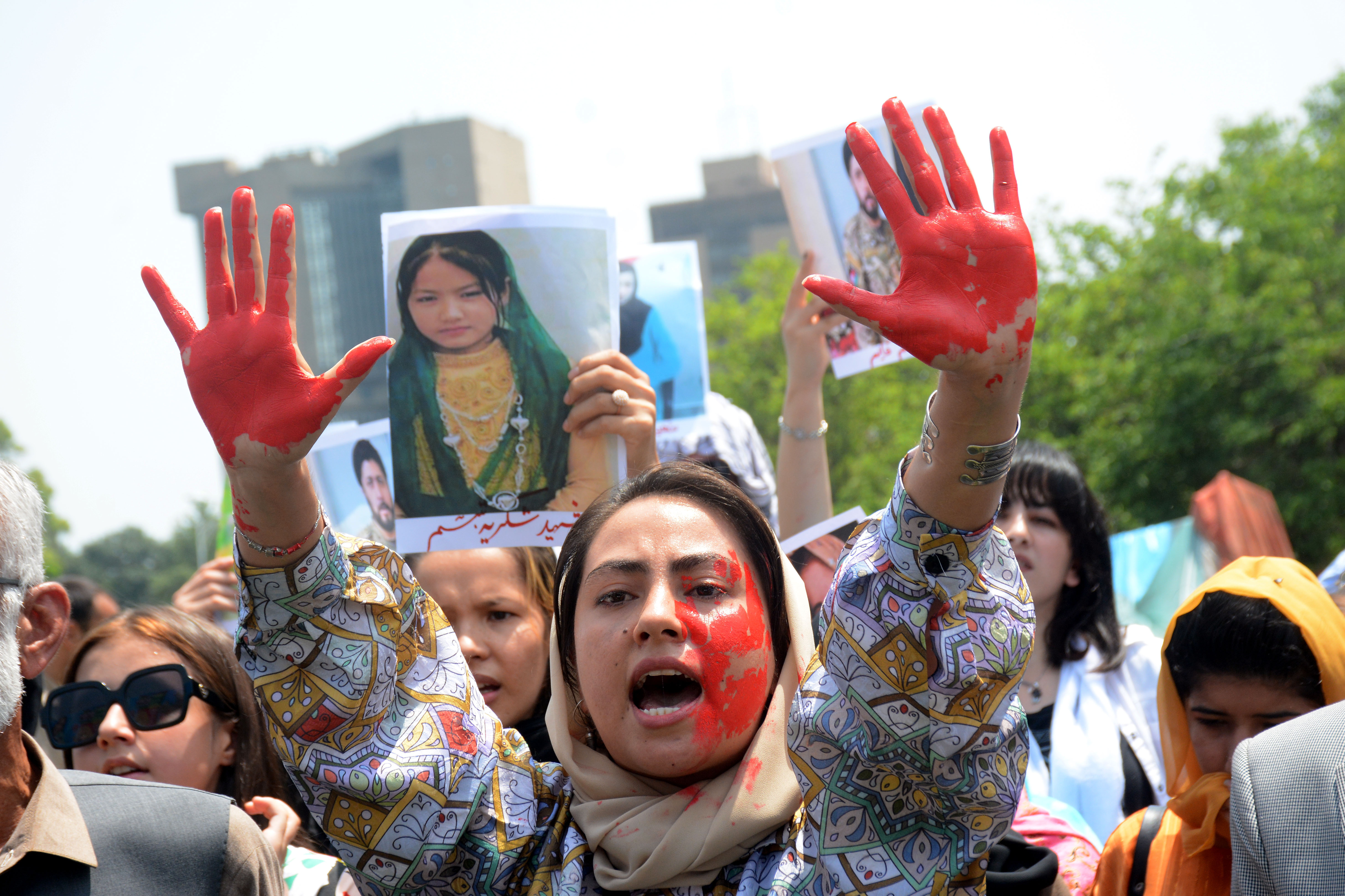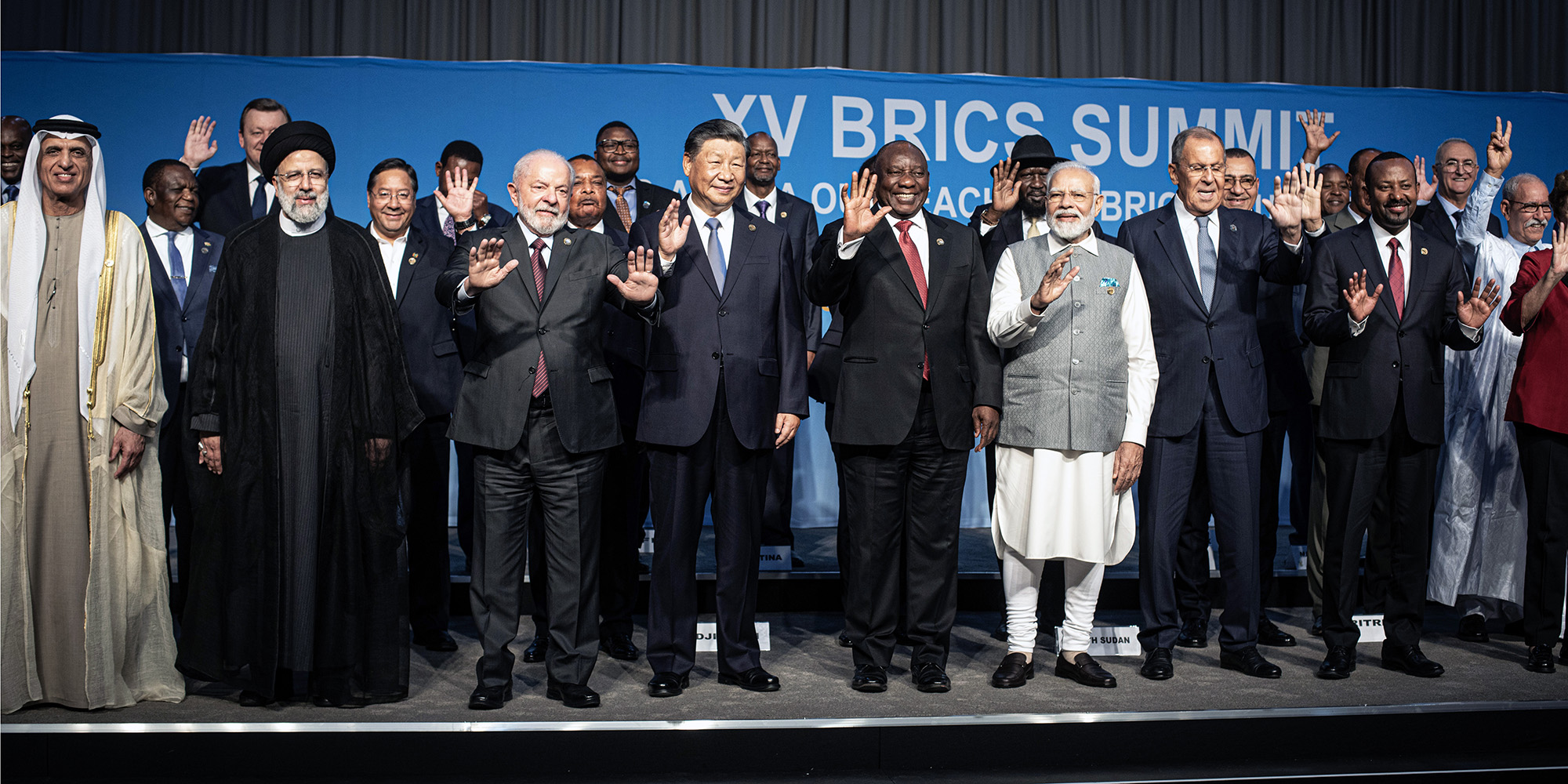This metaphor may work in understanding the twists and turns of international politics in the wake of the collapse of the Western mission in Afghanistan, Russia’s war in Ukraine, and the mooted expansion of BRICS as a counter to Western influence.
Is this a world on the cusp of costly fragmentation, or are there more binds that tie all states together whatever their topical tendencies and interests?
The centrifuge of contemporary conflict may lead us to believe that, currently, it divides more than it unifies. The early lessons from Russia’s war in Ukraine seem to support this thesis.
For one, even though it is much cheaper to deter than to support an ally at war, the West failed to do so, indirectly through its actions in Afghanistan and in timeously supplying Ukraine with the weapons it needs.
In this, stamina is the greatest warrior of all, on which deterrence credibility depends. Yet it is debatable whether Russia would have invaded Ukraine in 2022 if the US had not abandoned President Ashraf Ghani’s government in Kabul in 2021. A perceived flakiness of commitment is hardly likely to inspire allies to stay the course.
Guarding against American exceptionalism is, as it turned out, both in the interests of Americans and its erstwhile allies.
Ukraine also teaches that having two competing war goals – seeking Ukrainian victory and avoiding a catastrophic Russian defeat, for example – as a compromise to keep Ukraine’s allies on board, is similarly flawed.
Deterrence fundamentally requires communicating a willingness to fight. If you are afraid of escalation, no one believes your deterrence.
In this environment, as a consequence, nations determined to defend themselves will need to have their own “escalation capability”; Afghanistan (like Syria or Libya) suggests that you can’t rely solely on the US in this respect.
Whether this results in future proliferation of weapons of mass destruction as one contingency, or of different guarantees (say, for example, to the Baltic states in terms of deterrence) remains to be seen.
And yet there are forces pushing states together.
Ukraine’s situation also reminds us that, whatever the recent rash of “small wars”, conflict remains industrial – don’t believe that future war is all about cyber and information operations. It still requires extraordinary firepower and the resources to support and sustain this.
This hinges on an ability to mobilise and deploy rapidly, and the ability to garner enabling support from allies. In the enabling states, it requires the industrial capacity to upscale defence production and the political will to ramp up spending. It also suggests the need for greater attention on maintenance – equipment and personnel – to maintain suitable levels of readiness and mobilisation capabilities within a multinational environment where no one state (save the US, or China) can fight alone.
Technology can enable smaller states, but only to an extent. Tectonic tech changes are there – including autonomous weapons and the systems that cue and especially can “swarm” them – but the old-fashioned features of war, including defensive networks, the capacity to conduct combined operations, the use of artillery and tanks, and fighting esprit de corps all remain essential, as is diplomacy to ensure the alignment of interests and support.
The collapse of the Western mission in 2021 highlighted the failure to include the Taliban in the peace after 2002. This omission of the political component which was underpinned by American exceptionalism and unilateralism, was, in the former UN envoy Lakhdar Brahimi’s words, the “original sin”.
Today the Taliban have no professed ambitions beyond Afghanistan’s borders. Yet the resolution of Afghanistan’s myriad conflict and developmental challenges requires, as ever, regional coordination. The political economy of conflict; the motives of local actors and the incentive structure of the system in which they operate, reaches into the sub-region, as it did during the 1980s during the Soviet war and subsequently.
Afghanistan also illustrates that outsiders cannot want success more than local agents and that it is particularly foolhardy to place all your trust in the United States, even when you have no other option. One consequence for Kabul was to neglect Afghanistan’s regional peace dimension. Without Pakistan’s co-option to its cause, Kabul was doomed.
We should in principle be extremely dubious about the utility of external assistance as a tool for development transformation, capacity building and stabilisation.
 Afghan nationals carry placards and shout slogans during a demonstration against the Taliban government in Islamabad, Pakistan, on 15 August 2023. (Photo: EPA-EFE / Sohail Shahzad)
Afghan nationals carry placards and shout slogans during a demonstration against the Taliban government in Islamabad, Pakistan, on 15 August 2023. (Photo: EPA-EFE / Sohail Shahzad)
Afghanistan is not unique. Business as usual – a mix of aid and technical assistance – has largely failed to deliver its intended benefits across Africa, in part because it’s given to those states which precisely lack the governance capacity or wherewithal, and thus waste this assistance. Sometimes it’s down to financing being given to external agents – NGOs with a good idea as a different version of conflict entrepreneurs – rather than provided with a plan to build local capabilities.
And yet the imperative to deliver development and stability is increasing as Africa’s demography changes rapidly, doubling its population over the next generation.
These problems are amplified since state actors, at least how Westerners see them, are sometimes not present. Rather, these environments comprise highly diffuse, fragmented, personalised, radicalised (but not only by Islam) groupings. Still, the use of aid as a developmental tool persists in the absence of such honesty and seemingly lack of imagination.
Whereas in 1990, poverty was concentrated in low-income, Asian countries, poverty is now mostly found in sub-Saharan Africa and within conflict-affected states.
By 2030, sub-Saharan African countries will account for nine of the top 10 countries by poverty headcount, and 60% of the global poor will live in fragile or conflict-affected states.
As a consequence, the economy of conflict ensures it has a life of its own, of which there are many examples.
There is business in state failure, both with NGOs and with, to take another example, migrants. Even when failure is remedied, if ever, there will still be business. And the impacts are likely to be considerable.
Just 3% of Africa’s population lived outside their home countries in 2020, mostly in other African countries, compared to 8.5% of the European population. If Africa were to raise its numbers by, say, 2050, to European levels, then over 210 million Africans would be living in Europe.
Such questions of political economy also apply to peacekeeping. The system is urgently in need of review and reform, but no one is bothered – or wants to upset that feeding scheme.
On the reverse, there is a need for African states not to see their partners as ATMs, whether these be Western, BRICS or Gulf partners. Finding the means to align values and create a common sense of purpose, not lecture and engage in defensive, unproductive exchanges.
The wake of Russia’s invasion of Ukraine and the ensuing geopolitical tensions, centring in part on the rise of the BRICS as an alternative centre of power, suggests that the world is at a breaking point. That is a glass-half-full assessment.
The world is dependent on the continuation of the economic system which has, since 1990, been responsible for the fastest and most extensive process of poverty reduction than any other stage of history.
More than a billion fewer people are living below the International Poverty Line today than in 1990. On average, the number declined by 47 million every year, or 130,000 people each day.
From 2012 to 2013, at the peak (so far) of reduction, the poverty headcount fell by 130 million people worldwide. In December 2020, China declared it had eliminated poverty.
The logic of globalisation has, for all of its critics, been responsible for changing the power relationship between the North and the South in international affairs, in increasing favour of the latter.
It’s the unevenness of this growth which should concern, and its potential fragility, rather than the power that the global economy possesses to instigate change.
The fragmentation within states is hastened by social media and communication systems, and the yawning wealth gaps between elites and citizens. Within this is the dubious motivation of the postmodern generation to stand for liberty and its associated values.
There are further contradictions between liberty and social credit and surveillance systems which are complex but necessary to register, not least the creeping dangers to liberal order.
To this theme of fragmentation versus cohesion, should be added a note of caution: Whether this is a passing phase, with Xi and Putin its main actors, one which we will look back on as a blip in the longer sweep of history. According to this thesis, the cynical use of the BRICS to pursue naked self-interest and its contradictions – including being supposedly anti-hegemonic (when the BRICS contains two hegemons and several aspirants), respect for sovereignty (when this does not apply to Ukraine, Tibet, or Taiwan), or represents the Global South (when at least Russia is not) – is a passing tactical move. Others however argue that the rise of the BRICS is a predictor of the future of international relations.
We shall see.
In the interim, the answers to meeting today’s challenges depend not on highlighting differences, or the formation of different blocs to do so, but rather the universalisation of values and the avoidance of their characterisation as “Western”, but rather as a commitment to the human rights principles of the UN Charter which are universal and indivisible.
National interests centre in this way on values and values are indistinguishable from interests and are a platform for alliances.
The aim of policy would have to be to reduce these contradictions rather than widen them through new formations, and thereby attempt to set up alternatives to the UN system and the global economy, premised on exclusion rather than professed inclusion.
The worst thing that can happen in a family is for the tiger to eat a few of its members to assert its interests. That also normally ends badly for the tiger.
Universalising values and holding states to their commitments by calibrating carefully access and benefits to these conditions is one way to do so in global politics. DM
Dr Greg Mills is with The Brenthurst Foundation, www.thebrenthurstfoundation.org, and the author of Rich State, Poor State – Why Some Countries Succeed and Others Fail.




 Afghan nationals carry placards and shout slogans during a demonstration against the Taliban government in Islamabad, Pakistan, on 15 August 2023. (Photo: EPA-EFE / Sohail Shahzad)
Afghan nationals carry placards and shout slogans during a demonstration against the Taliban government in Islamabad, Pakistan, on 15 August 2023. (Photo: EPA-EFE / Sohail Shahzad)